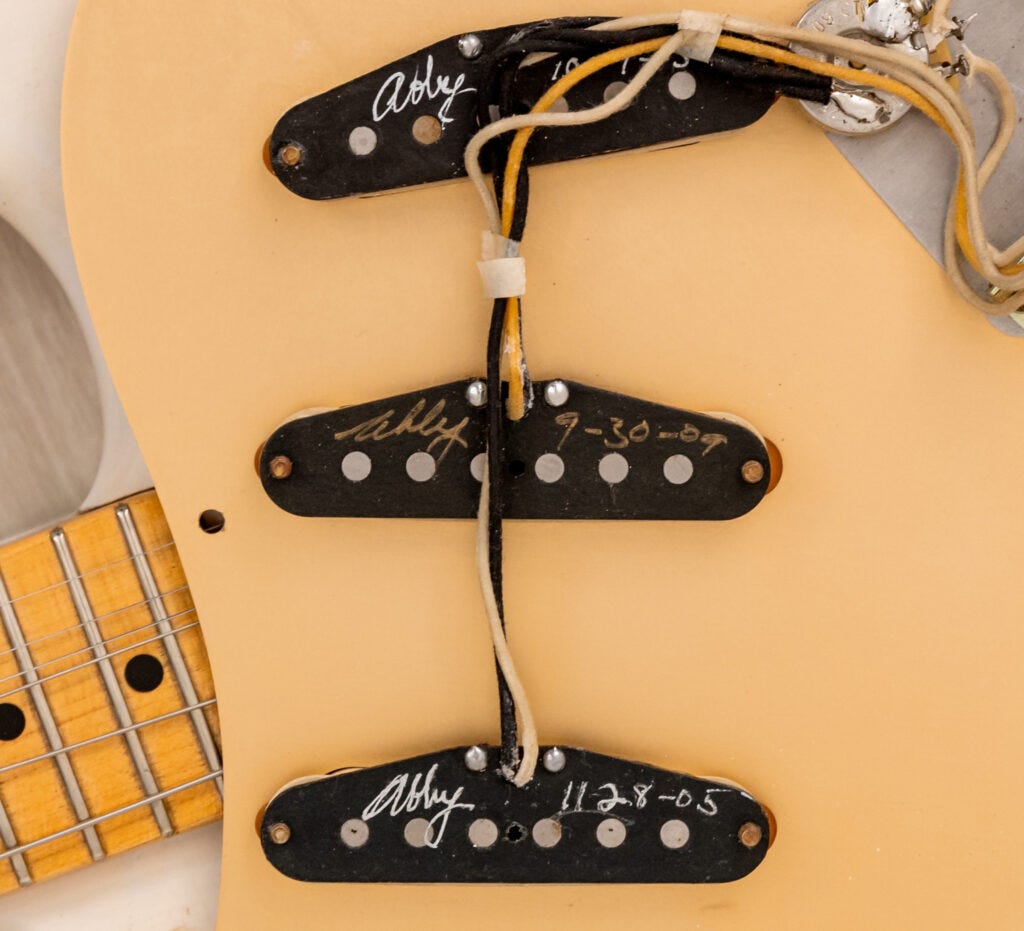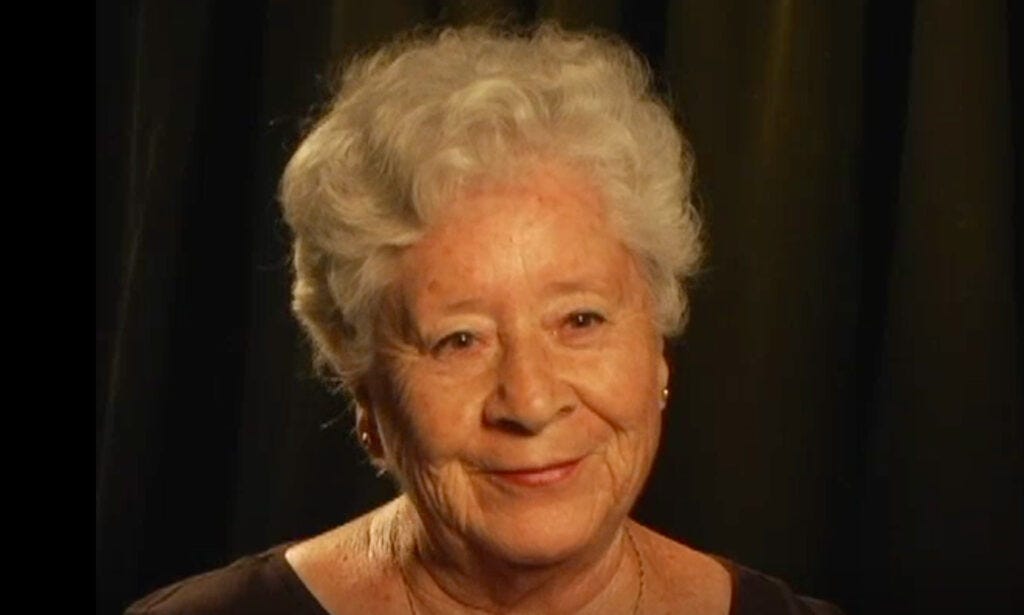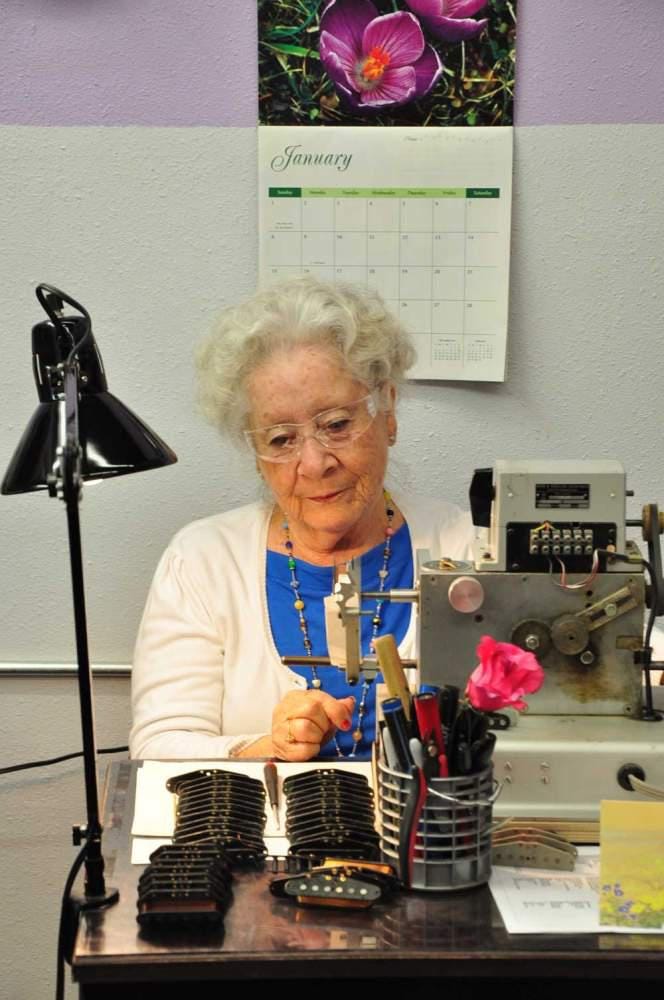(Originally Posted 05/02/24)
Fender's Longterm Pickup Legend
Strat players have strong opinions on the most important Strat-wielding guitar hero of all time. Jimi Hendrix gets a lot of shine, of course. Maybe you pick Stevie Ray Vaughn, Eric Clapton, or Jeff Beck. Maybe you throw it all the way back to the beginning and go with Buddy Holly. All decidedly unique players, taking Leo Fender’s Stratocaster to new heights and into unforeseen territory. Despite how different all those players ended up sounding, their signal chains all started in the same place, and there’s a very good chance that your favorite tones began with a set of Abby Ybarra single coil pickups.

In 1956, a teenager named Abigail Ybarra walked into the Fender Electric Instrument Company factory in Fullerton, CA. Ybarra needed a job to support her single mother and two sisters, and was familiar with Fender as her cousin had previously worked for the fledgling company. She was hired on the spot, and over the next five-plus decades would go on to become Fender’s longest working employee and an integral part of the Fender factory floor. Known in gearhead circles around the world as the “Queen of Tone,” Abby Ybarra’s handwound pickups are considered by many to be among the finest (if not the finest outright) single coil pickups ever crafted.
Ybarra started off working on wiring harnesses, but transferred over to pickups just a couple years later. When she started at Fender, all pickups were handwound, and Fender preferred to specifically hire women for pickup-related work, believing that men’s hands were too “rough” (according to Ybarra) for the precise task of winding pickups. Ybarra was taught to wind by Pilar Lopez, who had been taught by Leo Fender himself. However, around 1965, automatic pickup winders were introduced alongside other efforts to cut costs and improve efficiency. According to Ybarra, they went from roughly four handwound pickups per hour to dozens with the machine. Even with the machines, however, winding pickups was a delicate process. Many of the women employed by Fender found winding to be extremely difficult, with the fragile wire frequently breaking.
Not Abby Ybarra, though. “I just kind of took to it,” she reminisced in a 2017 interview with She Shreds. “…there [were] not that many people who wanted to wind pickups all the time. But I always liked that - for some reason I was comfortable doing that, so I just stayed working on pickups.”
Flash forward to 1985, when Fender Musical Instrument Company employees, led by William Schulz, purchased the company back from CBS with the intention of taking the company back to its roots and increasing the overall quality of Fender instruments. When they opened the Corona, CA factory and subsequently the brand-new Custom Shop in 1987, Fender brass wanted to return to the hand-crafted quality of the pre-CBS era. They began hand-shaping necks/bodies and hand-winding pickups. There were very few people who still had the knowledge of how to wind a true Fender single coil. Luckily, they had Ybarra, who already had decades of experience, and gave her a leading role in the development of the Custom Shop’s pickups.
Over the years, Abby Ybarra has developed a number of the Custom Shop’s most popular single coil designs, particularly the vintage reproductions, reaching back to the techniques taught to her decades ago by Pilar Lopez. She made significant contributions in the refinement of the Fender single coil, and her techniques have since become the industry standard. An exceedingly versatile craftsperson, Ybarra had a hand in developing pickup sets including the Custom ‘50s, Custom ‘60s, and Fat ‘50s single coils. Her most-lauded design is likely the Custom ‘69s, which are considered by many to be the quintessential modern Custom Shop single coil set. She wasn’t just in the design room, either: Ybarra continued winding pickups on the production floor right up until her retirement. Truthfully, while Michael Stevens and John Page (rightfully) get the credit for the founding of the Fender Custom Shop and its initial output, it’s hard to imagine the Shop reaching its current heights without the prolific output of Abby Ybarra. Seeing an “Abby” signature or “AY” initials on the bottom of your pickups is a surefire sign that you are in very good hands.
Ybarra retired to Redmond, CA in 2013 at age 80; while her well-earned departure signified the end of an era for Fender, Ybarra's legacy and expertise has been passed down to her Custom Shop successor, Josefina Campos, who is now third in the Fender lineage of Latina women heading the Custom Shop pickup department, stretching all the way back to Lopez. Campos spent three years apprenticing directly under Ybarra (and had been a member of the Custom Shop team for years prior), learning as much of the latter’s 50 years’ worth of techniques and knowledge as possible. While Ybarra may no longer be physically present on the Fender production floor, her impact on single coil pickups across the entire industry will be felt as long as there are bobbins and wire.
“Abby is one the many individuals, like George Fullerton, Freddie Tavares, and Forrest White, who have set our course as a company and leader in our industry,” said Fender Custom Shop Marketing Director Mike Eldred to Vintage Guitar following Ybarra’s retirement, “she has literally set the tone for Fender.”
When people talk about the “Fender Tone” or “Strat Sound,” they’re talking about the handiwork of Abigail Ybarra. If you stretched out the wire from all of her pickups, it could wrap around the planet 16 times. She’s directly responsible for some of the most important tones of all time, there’s a very good chance that your favorite Strat player’s pickups began their lives in her hands.






